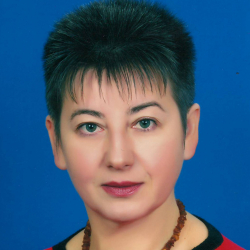
Present Simple/Present Continuous
Present Simple
Present Continuous
We use the Present Continuous:
- For actions taking place now, at the moment of speaking. She is driving to work now .
We use the present simple:
- For permanent states, repeated actions and daily routines. He works in a bank. (permanent state) He takes the train to work every morning . (daily routine/repeated actions)
- For temporary actions; that is actions that are going on around now, but not at the actual moment of speaking. Tom and Ann are talking in a café. Tom says: “ I’m reading an interesting book at the moment. I’ll lend it to you when I’ve finished it.” Tom is not reading the book at the time of speaking. He means that he has begun the book and hasn’t finished it yet. He is in the middle of reading it .
- For general truths and laws of nature. The sun sets in the west .

Present Simple/Present Continuous
Present Simple
Present Continuous
c) for sports commentaries, reviews and narration. - Hill kicks the ball and passes it to Dawson . (sports commentary)
c) with adverbs such as: always, constantly, continually, etc. for actions which happen very often, usually to express annoyance, irritation or anger.
- Mike Dalton plays the part of Macbeth . (review).
- I’m always meeting Sara when I going shopping. (action which happens very often)
- You’ re constantly interrupting me when I’m talking . (expressing annoyance/irritation)
- Then the prince gets on his horse and quickly rides away . (narration)
d) For actions that we have already arranged to do in the near future, especially when the time and place have been decided.
d) for timetables (planes, trains, etc.) and programmes. The plane from Brussels arrives at 8:30.
Melanie is getting married at 3 this afternoon . (The time and the place for the wedding ceremony have been decided )

Present Simple/ Present Continuous
Present Continuous
Present Simple
e) For changing or developing situations.
e ) To give instructions or directions (instead of the Imperative).
More and more forests are disappearing because of fires.
You sprinkle some cheese on the pizza and then you bake it .
The Present Simple is used with the following time expressions :
usually, often, always, seldom, rarely, never, sometimes, as a rule, hardly ever, every day/week/month/year, in the morning/afternoon/evening, at night, at the weekend, etc.
The Present Continuous is used with the following time expressions :
Now, at the moment, at present, these days, still, nowadays, today, tonight, Look!, Listen!

State verbs
State Verbs are verbs which describe a state rather than an action and therefore do not normally have continuous tenses. These include:
- Verbs which express likes and dislikes: like, love, dislike, hate, enjoy, prefer, adore, want, wish, fear, mind, etc. Cathie likes romantic films.
- Verbs of the senses: see, hear, smell, taste, feel, look, sound. E.g. The soup tastes delicious .
We often use can or could with these verbs when we refer to what we see, hear, etc. at the moment of speaking. E.g. Jim must be at home. I can see his car parked outside.
- Verbs of perception : know, believe, understand, realize, remember, forget, notice, recognize, think, seem, see (= understand), expect (= think) , etc. e.g. I expect they will be late.
- Some other verbs: be, contain, include, belong, fit, need, matter, cost, mean, own, have (=possess), require, keep (=continue ), etc. e.g. My uncle owns a hotel .
Some of the above verbs are used in continuous tenses, but there is a difference in meaning.
Study the following examples:
- I think he is lying. (= believe ) or I’m thinking about my holiday. (=am considering)

2 ) The food tastes awful . (=has an awful flavour)
She’ s tasting the soup. (= is testing the flavour of)
3) I can see an aeroplane in the sky. (=perceive with my eyes) I see what you mean (=understand)
I’ m seeing Jil tonight. (=am meeting)
4) It looks as if they’ve finished the job . (=appears)
Susan is looking at some photos . (=is studying)
The verb look (when we refer to a person’s appearance) can be used in either the continuous or simple tenses with no difference in meaning.
You look/are looking great today .
5) This perfume smells nice . (= has a nice smell)
The cat is smelling its food . (=is sniffing)
6) This towel feels soft . (=has a soft texture)
She is feeling the baby’s forehead (= is touching)
7) He has a sports car . (=possesses)
He’ s having lunch now . (=is eating)






















